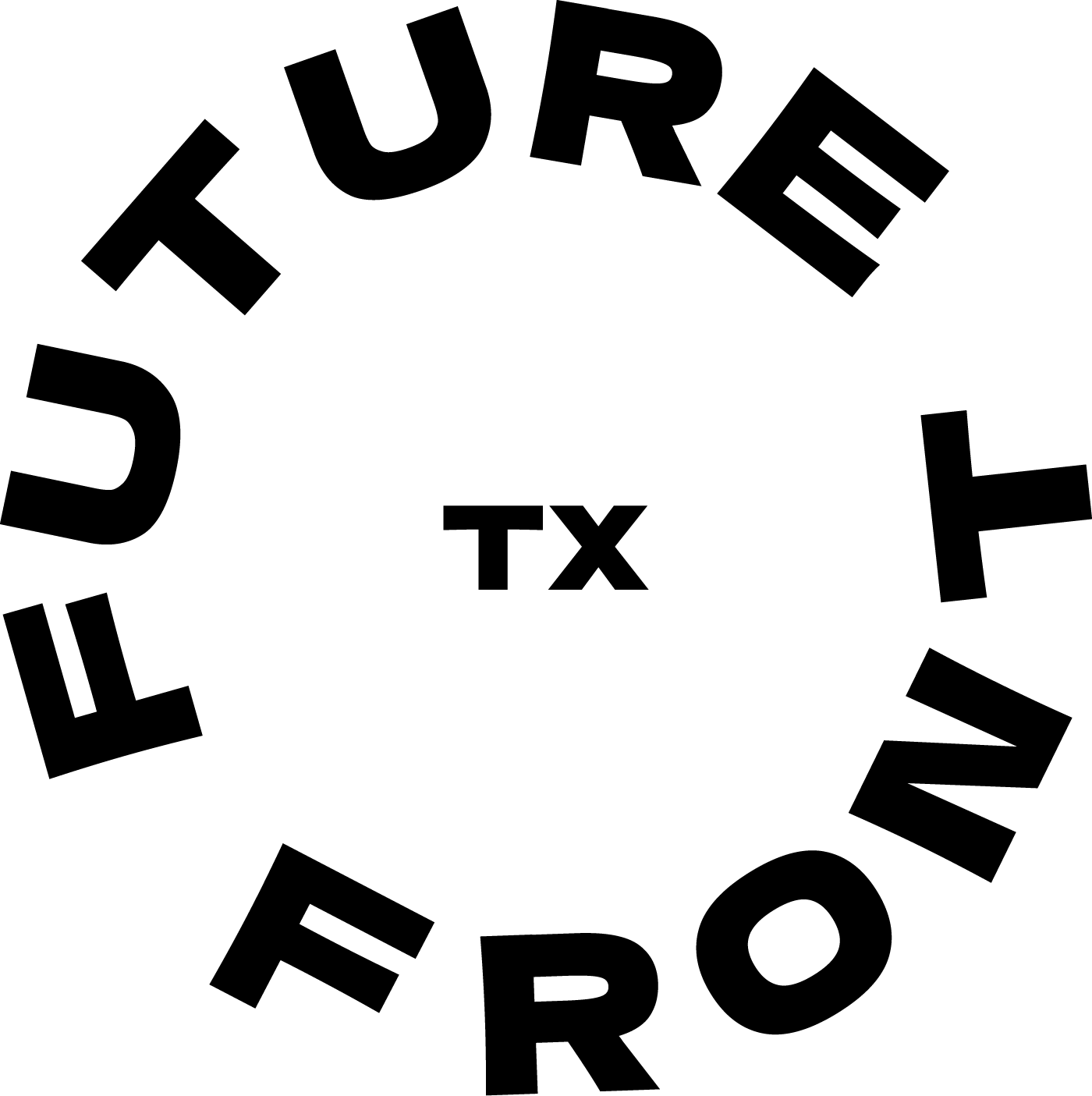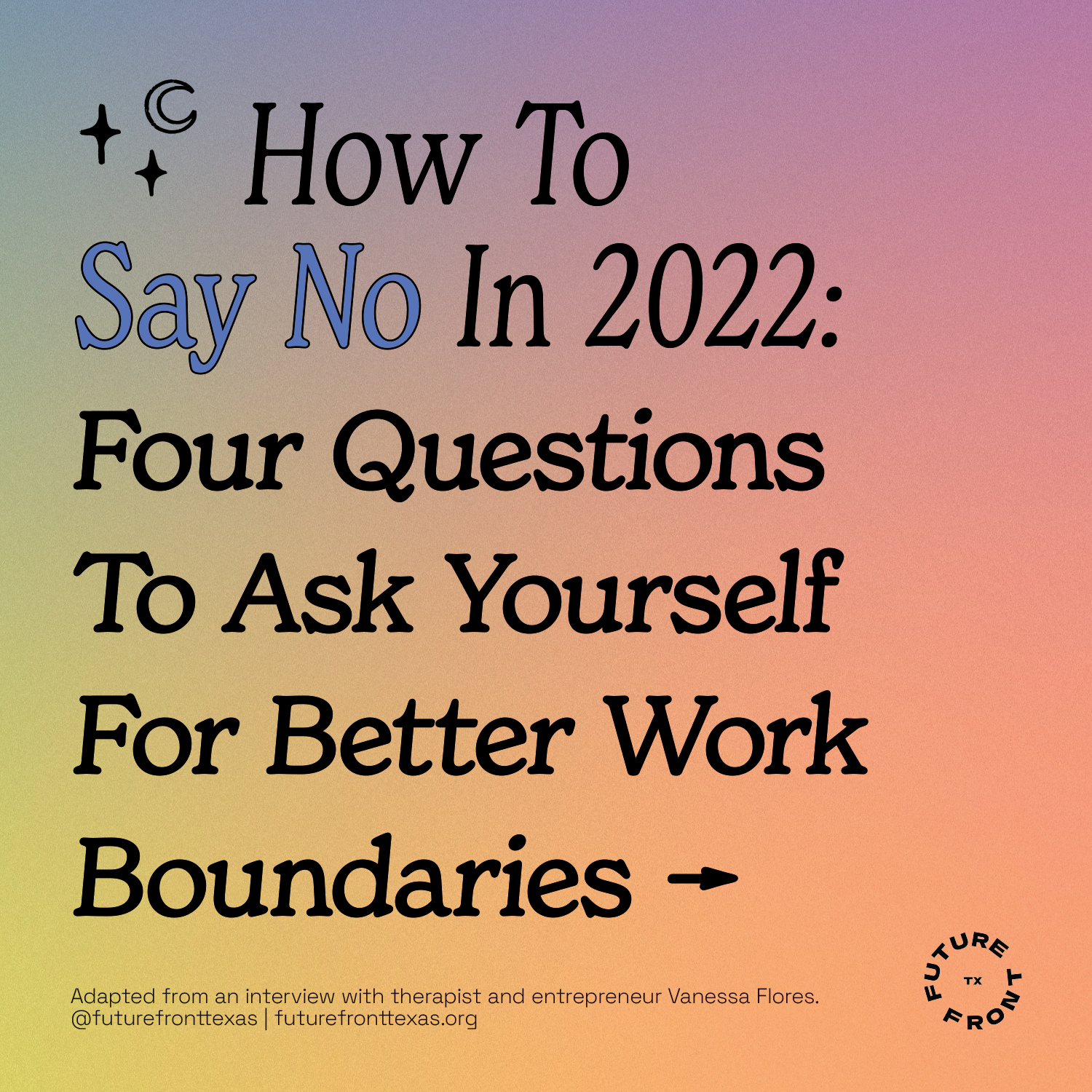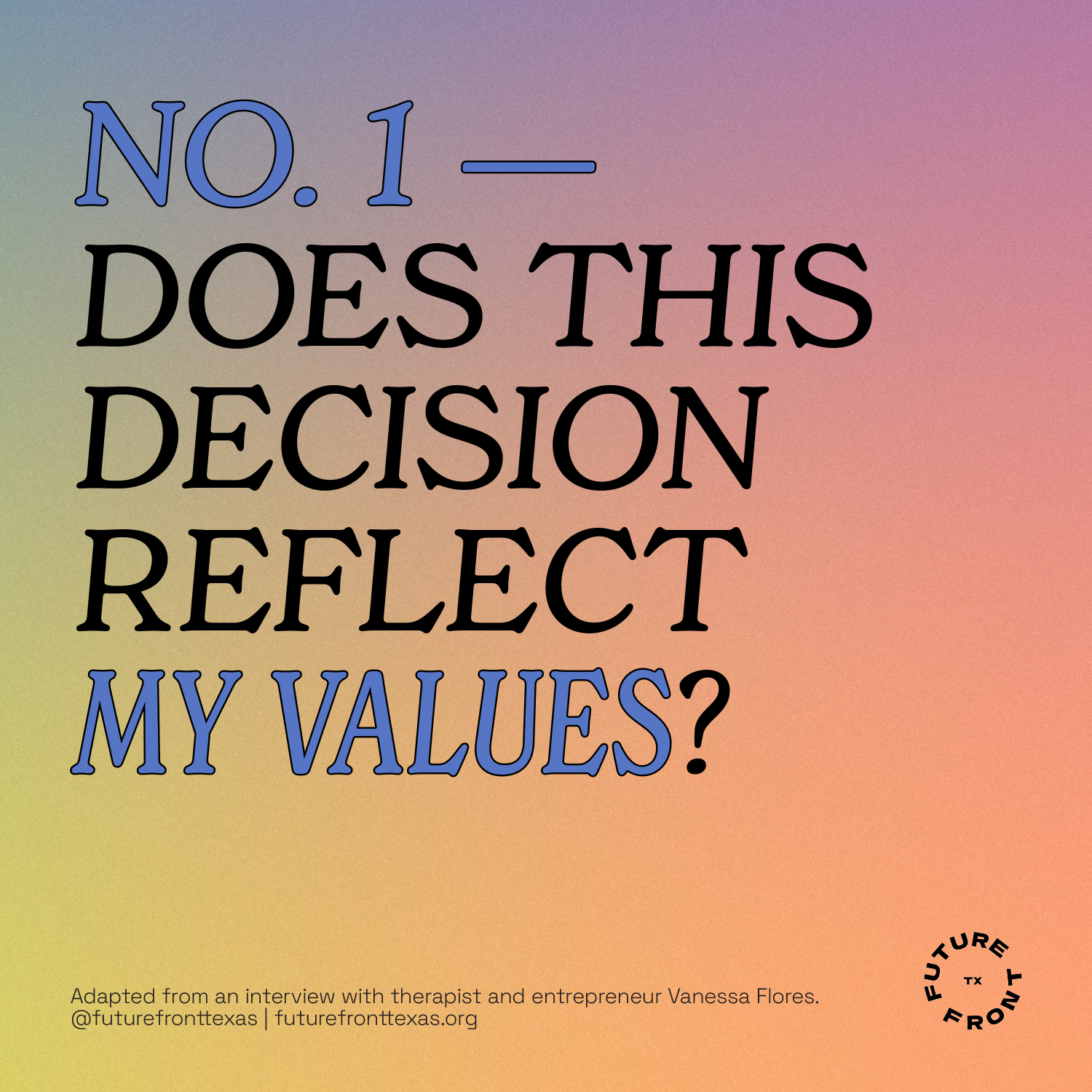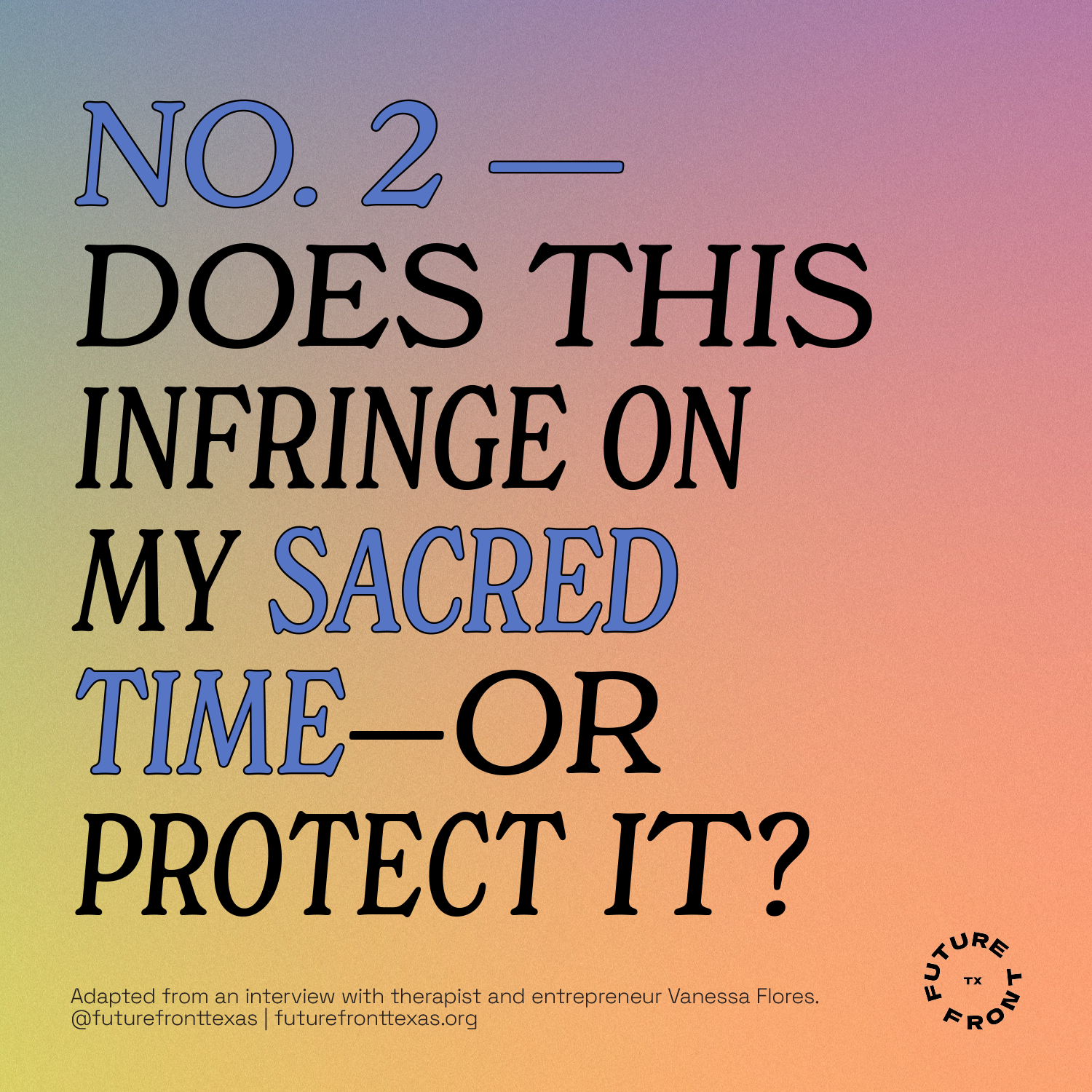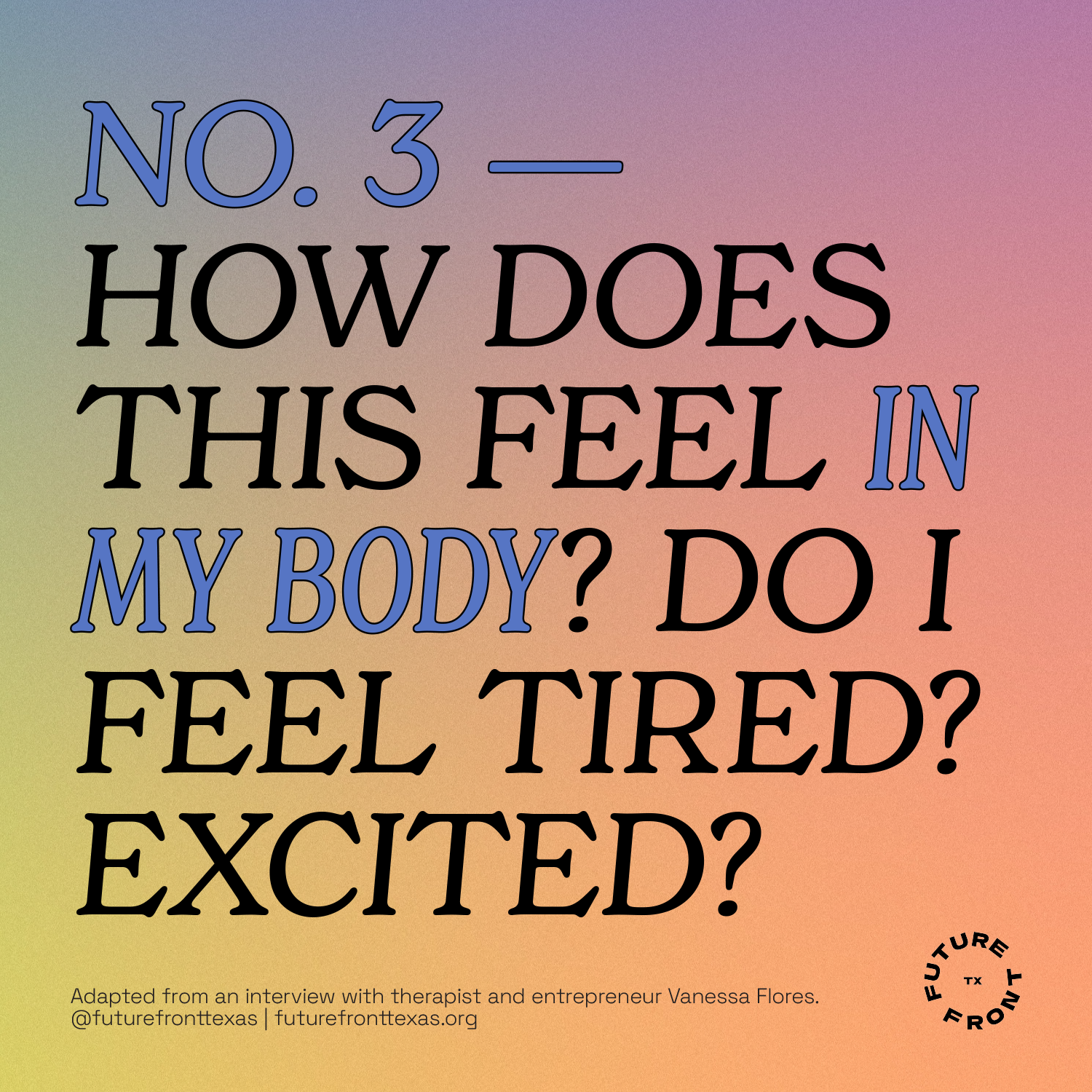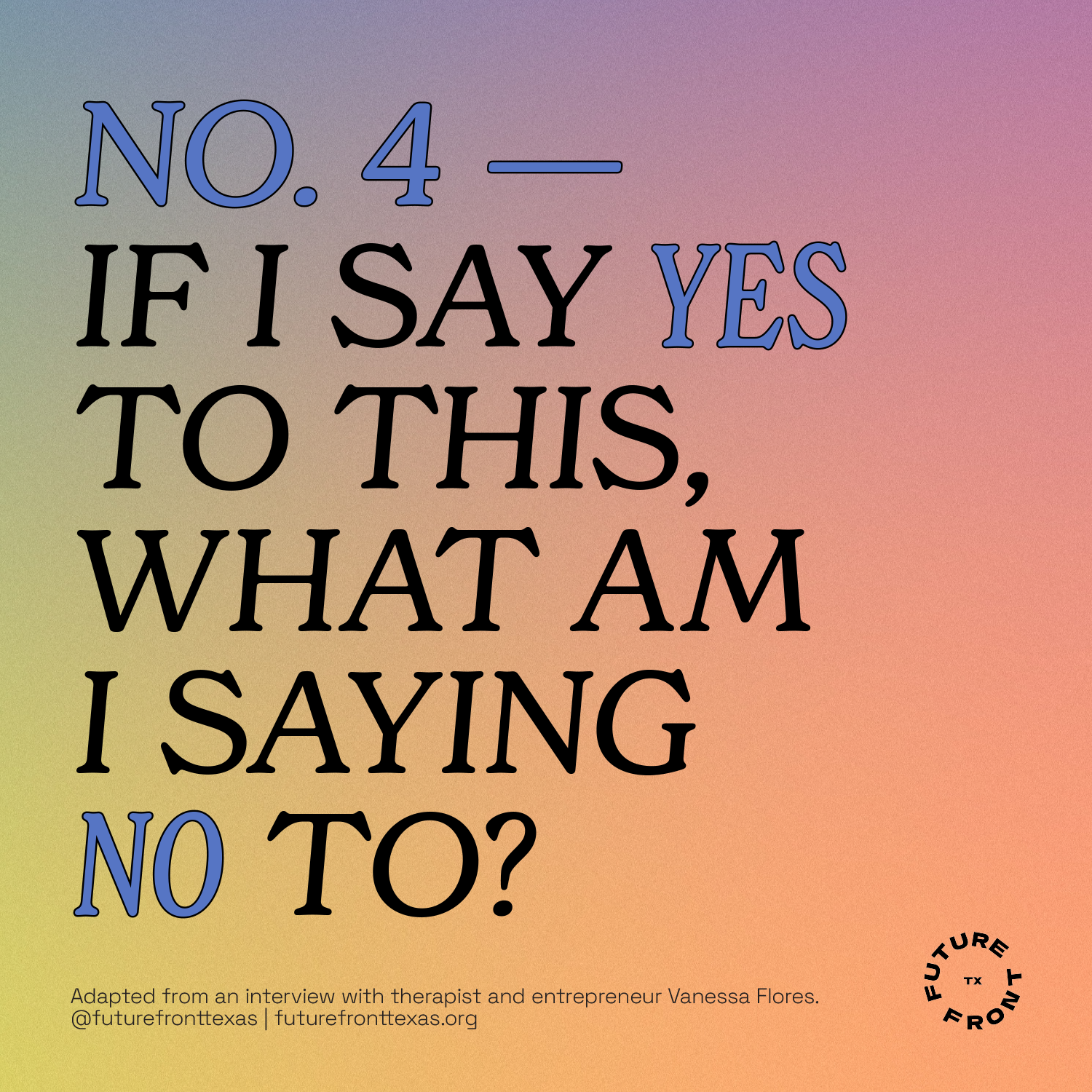How To Say No: Four Questions To Ask Yourself When Setting Work Boundaries
On Saturday, August 22, we hosted WORK, our biannual conference examining creative and entrepreneurial approaches to work. That summer, our theme was reset—so we explored everything from leadership in times of renewal to reevaluating the values present within our work.
In recapping the conference’s discussions, we chatted with Vanessa Flores, principal at Colors of Austin Counseling and Brave and Well, about her session on boundary-setting. Flores has joined us for a few of our virtual events and talks in the last few months, and today we’d like to share some of her talks’ takeaways.
Editor’s Note — This blog post was written and compiled by Future Front Executive Director Jane Hervey and reflects takeaways from talks and interviews with Vanessa Flores. It was originally published in August 2020.
Here are four questions to ask yourself FOR better boundaries at work:
1.) Does this decision reflect my values?
Understanding our boundaries and priorities takes a bit of self-reflection and examination, too. It can be difficult to understand what kind of work is best suited for our needs and goals, as well as our values. To better clarify what’s a yes and no for you, Flores recommends reflecting on your values.
“I can’t be the yes person in all things. I am going to engage in work and collaborate with people who I feel passionate about and align with my values as a person and with my business. I’ve also decided I'm not doing anything for free anymore, and that’s been something really hard to sit with because access is a value I hold. My hope is that the tables I am a part of honor all parts of my identity and value what I can bring. Declaring that has been really freeing,” Flores said.
2.) Does this decision infringe on my sacred time—or protect it?
We all need space to rest and recharge, and our boundaries around work time and personal time will always be in flux. Sometimes, we need more rest. Sometimes, we need more time for family. Sometimes, we need to take time away from work to handle a crisis or heal. For example, right now, many of us are grappling with the day-to-day nuances of living (and working) through a pandemic. Flores recommends taking your own capacity and environmental factors into account before saying yes to things. Does this decision infringe on your sacred time—or protect it?
“As a country, we’re experiencing collective grief and trauma. The spaces we are confined to right now have become the space for all life. There is no space for separation. We are teaching, grieving, experiencing trauma, working, eating all in the same space everyday. It’s important to be kind to yourself and to take time and take space and create a degree of separation between work and life in order to keep moving,” Flores said. “I have to understand that my capacity is lower, and I have to take care of my team. I restructured my schedule. I only work Tuesday through Thursday because that’s when we have childcare. I have to be really protective of my time. I create buckets in my schedule that are categorized for supporting others and supporting myself.”
3.) How does this decision feel in my body? Do I feel tired? Excited? Anxious?
When it comes to making decisions, our bodies often have a lot to tell us. Tracking the way a decision feels can be a helpful tool for deciding what to do, too. By tuning into our emotions, we are better able to discern between what feels like excitement versus anxiety or burnout versus disinterest.
”You’ve got to listen to your body. If you’ve slept 10 hours and you’re still tired, that’s your body telling you something,” Flores said.
4.) If I say yes to this, what am I saying no to?
At work, it can be easy to say yes to everything. In many cases, saying yes feels good—or simply easier than saying no. We may also say yes, because we feel pressured to please or we feel like a yes is what’s expected of us. If you can, Flores recommends taking a minute to pause and unpack before you take something new on. Ask yourself: If I say yes to this, what am I saying no to? Is this a priority for me?
“I am a recovering perfectionist,” Flores said. “I have a tendency to over-book myself when I feel like I’m not good enough or I need validation or I don’t think I’m busy enough.”
LOOKING FOR MORE?
ABOUT VANESSA FLORES — Vanessa Flores is the founder of and principal therapist at Colors of Austin Counseling. Colors of Austin Counseling is an intentionally diverse multidisciplinary group practice that provides counseling services in person and online within the state of Texas. They are social-justice oriented in their practice and inclusive in our work within the community. Their goal is to reduce the barriers that exist when it comes to mental health support and to provide high quality clinical services to all regardless of race, gender, and/or socioeconomic status. (They currently partner with Future Front on our Community Leaders of Color Mental Health Fund Initiative.)
ABOUT FUTURE FRONT’S WORK CONFERENCE — WORK is a a day of workshops and talks curated by Future Front. Join us annually to hear creatives and founders explore the messy nuances of growth, collaboration, leadership, identity, storytelling, equity, wellness—and all the other things we need to do our best work. Click here to learn more.
